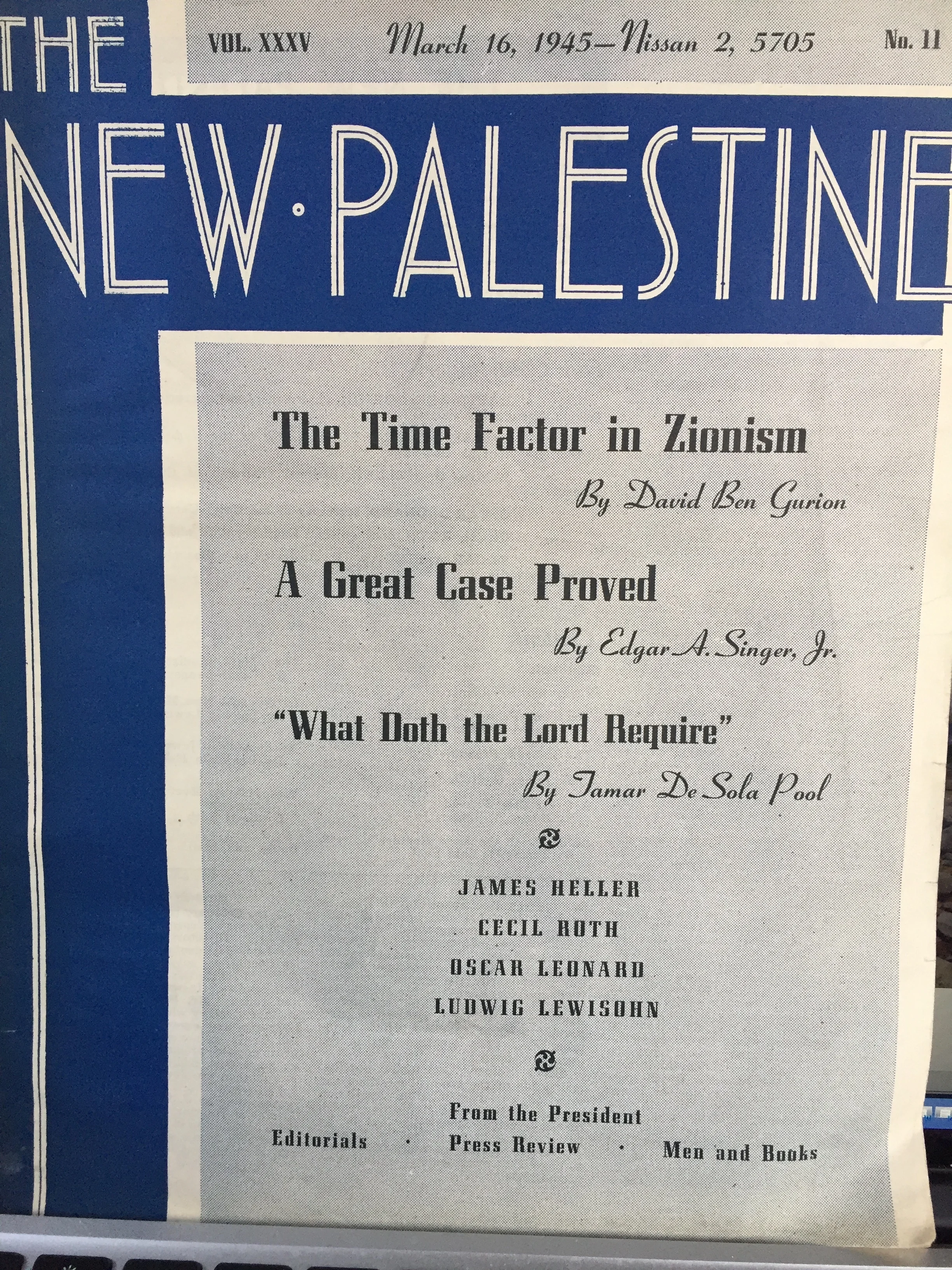Survivor with U.S. Army Chaplain
A friend recently gave me an issue of The New Palestine from March 1945. Published by the Zionist Organization of America, the periodical constitutes a time capsule of American life as well as Jewish life. We catch glimpses of the plenty of American life: Passover advertisements from Manischewitz etc, Jewish camps like Modin (with dietary laws followed!), visions of leisure fun at Grossinger's, the latest gadgets from Hammacher Schlemmer, liquor from Seagram’s, fragrances from Helena Rubinstein, and last but not least the contemporary cinema featuring stars like Rita Hayworth and Errol Flynn.
Making Matzoh In A Displaced Persons' Camp
The big story remained World War II. President Roosevelt and Adolf Hitler still were alive and the war hadn't yet ended. But its end was at hand, in a few months both FDR and Hitler would be dead, and all of the authors in one way or another pondered the content of the terrible conflict and its implications for the post-war era.
The lead article caught my eye: "The Time Factor in Zionism," written by David Ben Gurion, then chairman of the executive committee of the Jewish Agency for Palestine, in effect the CEO of the Jewish community in British Palestine.
Ben Gurion took both the long and short view of Jewish history as he surveyed the tragedy of European Jewry, the relatively unscathed landscape of American Jewry, and the strong yet fragile reality of Palestinian Jewry. The survivors couldn't and shouldn't have to wait for the next stage of their lives to begin. The time was now for them: they needed to leave Europe and rebuild their shattered lives. Palestinian Jewry needed them: Ben Gurion restated classical Zionist policy about large-scale immigration (one million people), intensive settlement of the land, and the imperative of a Jewish state. The ultimate goal remained the metaphysical claim of Zionism: the Jewish people's aim to possess dignity and freedom needed them to be concentrated, in a land of their own, in a state of their own.
Ben Gurion's wisdom lay not merely in understanding and articulating those claims, but in his reading of the role of timing in history. Some leaders see risk lurking around every corner; others glimpse opportunity even in chaos and tragedy. He recognized that the world would never be the same after the quieting of the guns of war. Tens of millions of people were on the move, empires were falling and new states were emerging. It would be a new political order of things.
For Jews the long view often got in the way of acute and medium range thinking and strategy. For a people with such a long history could they seize the moment, pull refugees to Palestine, push American Jews to think beyond kosher for Passover products and Grossingers in the summertime, in the process launching a new Jewish state?
Passover of 1945 was just a few weeks away, as the magazine's date of the month of Nisan attests. The Jewish sacred calendar contains the linear and the cyclical. As Jews all over the world readied themselves to sit down at yet another seder night, they experienced both the haggadah's meta-story of slavery and freedom and their own life experiences of degradation and dignity. Survivors in DP camps made their own haggadot, attesting to both the continuity and rupture of Jewish life.
Ben Gurion pushed his readers not to lapse back into the past, into passivity, into the somewhat numbing effect of the sheer weight of the Jewish past and the trauma of the destruction of European Jewry. Instead the future was now. Time to stop feeling and thinking history and time to start making history.
Seder Night in a Displaced Person's Camp, Bamberg Germany 1946
In a few weeks global Jewry of 2017 will sit down to celebrate the feast of freedom. We should ask ourselves the same question Ben Gurion asked seventy-two years ago: what should we do with our freedom? What are the opportunities and necessities for us at this moment in time? Hopefully Israel's leaders in the present will do no less than Ben Gurion.




